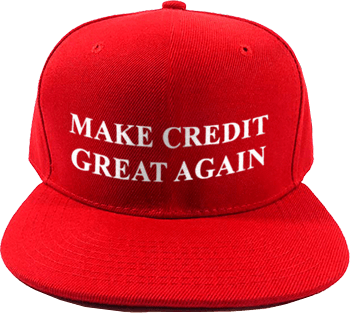Our world deals in credit. We pay for just about everything with cards rather than cash. When you pay for something with a card, that card is either linked to your bank account or to a credit account.
A card linked to your bank account is called a debit card, while a card linked to a credit account is known as a credit card.
So what exactly is credit and why would it need to be “repaired?” Let’s take a look at the answers to these questions and others relating to good and bad credit.
What Is Credit?
Credit is the name given to a trust that exists between a money lender and a money spender. When the lender provides the spender with money, it’s with the understanding that they’ll receive payment at a later date.
Opening a line of credit gives you access to a certain amount of money through a credit card. You can build up good credit in several ways, including making your payments in full and on time. Bad credit can develop as you miss payments or only make partial payments among other things.
Learning How to Repair Credit
Learning how to repair credit isn’t difficult, but it does take time and patience. First, you need to know your credit score. A score of 550 or lower is considered poor, while around 700 is good, and above 800 is excellent.
How Do You Know If You Have Bad Credit?
There are a couple of ways to know if you have a bad credit score. One is to evaluate yourself: are you making your credit card payments in full and on time? If the answer is no, you likely have a poor credit score.
One way to know for sure where your credit score sits is to get a copy of your credit report and credit score. There are three nationwide credit reporting companies: TransUnion, Experian PLC, and Equifax. Everyone is entitled to one free copy of their credit score and report from each of these companies every twelve months.
You can submit a request for your credit score and report online, through annualcreditreport.com or over the phone at 1-877-322-8228.
How to Repair Bad Credit
If you have poor credit, try doing the following to improve it:
- Pay outstanding credit card balances. Do what you can to dig yourself out of large amounts of debt and stay on top of your payments.
- Pay bills on time. Show your creditors that you can be trusted with their money.
- Review your credit score. Know exactly what your score is and where you stand.
- Dispute negative marks or incorrect late-payment entries. People make mistakes. Some of those mistakes could be negatively impacting your credit score.
- Increase credit card limits. If you’re maxing out your credit limit every month, that will damage your credit score. Call and ask your credit card company if they can increase your credit limit.
- Open another credit card account. But don’t use this card. Opening another account will help to increase your credit limit on your current cards.
- Don’t close old accounts. Even if you haven’t used a credit line in years, closing that account could impact your credit score negatively. If you need to close an account, close a new one before you close an old one.
Why You Need Good Credit
When you start making payments on outstanding debts racked up on a credit card, you begin developing a credit score. A credit score is a numerical value given to a person’s credit files. It represents the person’s creditworthiness.
Put simply, if you have a good credit score, lenders will be more likely to give you Credit Repair loans when you need them. Looking to buy a house? Good credit will help you get a better deal on a loan. Thinking of getting a new car? Good credit will help there too!
Contact our partner Lexington Law for a free credit repair consultation today. We’re here to help you figure out how to repair your credit score.




